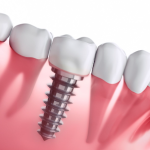A cochlear implant is a small electronic medical device used to manage deafness of patients with profound hearing loss. This device works by stimulating the nerve responsible for hearing, the cochlear nerve.
The cochlear implant bypasses the cochlear nerve and directly sends sound signals to the brain in electronic form. These signals are decoded by the brain and interpreted as specific sounds.
While an ENT specialist is the best person to advise whether you should get a cochlear implant or not, there are certain facts that you must know about this device and what you should expect from it. It is extremely important for you not to set unrealistic expectations from this device and compare its effectiveness with absolutely normal hearing, even though it helps restore hearing power in patients to a large extent.
Facts About Cochlear Implants That You Must Know
Before you agree to undergo cochlear implants in India or any other country, you should know the following facts:
Hearing normally takes time: You will not be able to hear sounds clearly immediately after the surgery, unlike hearing aids. Instead, it takes time to get used to cochlear implants and train your brain to catch and interpret the signals into specific sounds. You may have to undergo aural rehabilitation initially to achieve the desired results with respect to hearing.
Natural hearing is completely lost: You may end up losing all of your natural hearing capability of the ear where the cochlear implant is placed. This is the reason why you should stick to the decision of getting hearing aids if some bit of natural hearing ability is still left in the affected ear.
New sounds do not sound natural: Even though your hearing ability is restored to some extent after getting cochlear implants, the new sounds may not sound like original or natural at all. In fact in some patients, cochlear implants may not restore hearing ability at all.
Aural rehabilitation may take time: You will have to spend a significant amount of time to train yourself and your brain to make optimum use of the cochlear implant for hearing. The duration of rehabilitation depends on how quickly or slowly you learn and your overall progress with respect to restored hearing ability. For some individuals, doing this may take a long time.
It may get damaged: There are huge chances for the cochlear implants to get damaged during high-intensity sports, activities, or an accident. It is also important to remember that you need to remove the external part of the implant before diving into the pool for swimming or taking a bath. Parents need to pay special attention to their children with cochlear implants for the same reason for children tend to forget such intricate details.
Routine visits could be exhausting: After getting cochlear implants, you will be required to visit the doctor routinely for fine-tuning of the implant for proper hearing. The adjustments may last over a period of few weeks to months and it is more of an ongoing process. You can expect an improved quality of life only if you are committed to making routine doctor visits and spend a considerable amount of time with speech-language experts and audiologists for rehabilitation.







